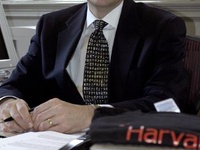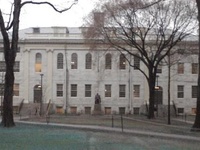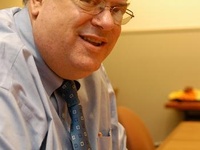An unusually high number of professors spoke up during a November meeting, many of them emphasizing the review’s significance.
“This is our moment, and I hope we will not shrink from it,” said Plummer Professor of Christian Morals Peter J. Gomes at the time.
At the following month’s meeting, Gutman Professor of Latin American Affairs John H. Coatsworth encouraged his colleagues to keep an open mind throughout the review process. “We will have missed a huge opportunity if all we do is tinker,” he said. “We don’t get to do this that often.”
After spending the fall brainstorming ideas, each working group contributed to an interim report which was discussed at a Dec. 16 Faculty meeting.
The report avoided specific recommendations, instead reiterating six broad goals of internationalization, scientific literacy, interdisciplinary study, faculty-student interaction, increased student research options and expanded undergraduate work with other University schools.
Despite this update, some professors said they felt dissatisfied with the progress and presentation.
“No big theme emerged,” said Professor of Government Harvey C. Mansfield ’53 afterwards. “I couldn’t tell what the Faculty thought was wrong with our present curriculum.”
In spite of the report’s vague tone, administrators remained optimistic that a fully formed set of recommendations would be completed by the end of this academic year—a goal that now appears to be within reach.
“We knew what we were putting out,” says Wolcowitz of the interim reports. “That’s where we were at that point, even if it wasn’t specific.”
LEFT IN THE DARK
Wolcowitz now anticipates that his report will facilitate and focus academic discussion among faculty, students and administrators.
Such a shift is likely to be a welcome development in a review that some have criticized for neglecting the Harvard community in its decision-making process.
“I don’t think any of my colleagues have any clue what’s going on,” says Professor Richard G. Heck. “There’s been some faculty presentations but not a lot. I think people are pretty clueless.”
Professor of the History of Science Everett I. Mendelsohn says that most of his information about the workings of the review has come from informal sources, like friends on the committee and various departmental rumors.
Lecturer on the Study of Religion Brian C.W. Palmer ’86 says that he also feels that the review ought to have organized differently.
Read more in News
Mahan Unveils New Harvard-Yale Game Plan















